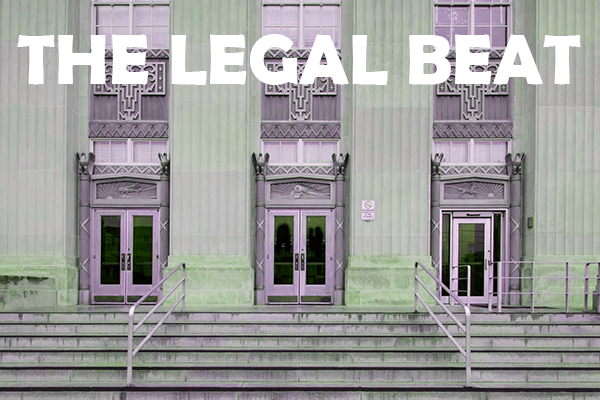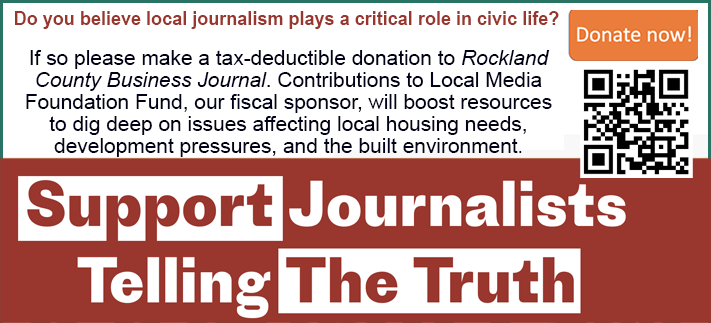|
RCBJ-Audible (Listen For Free)
|
Homeowner Says She Was Wrongfully Denied Permit While Clarkstown Contemplated A Ban On AirBNB & Short-Term Rentals
LEGAL BEAT
Emma Martinez bought a four-bedroom house with a swimming pool on Ilona Lane in Valley Cottage in 2018 to use as an AirBNB. The plan hummed along fine but there were complaints by neighbors who didn’t like the fact that people were coming and going in the neighborhood.
When the building department was called in, Martinez was told that an overhang on a building cabana didn’t meet the code and issued her a violation. Martinez went to the Clarkstown Zoning Board of Appeals, which granted her a variance for the two-foot overhang. But Martinez had a bigger problem: she still needed a permit from the building department to legally operate an AirBNB.
Her timing couldn’t have been worse. Just as she was returning to the town to apply for a permit, the town of Clarkstown was considering a law to prohibit short-term rentals. In March 2022, the town banned AirBNB and other short-term rental uses in residential neighborhoods.
For years, Martinez and the Town of Clarkstown have been embroiled in a simmering legal dispute that began in Town Justice Court in Clarkstown, then moved to Rockland County Supreme Court and has now moved to the U.S. District Court in White Plains.
At issue is whether the town obstructed Martinez’s ability to register her property to conduct short-term rentals at the time when short-term rentals were still allowed in Clarkstown.
“The town, town attorney and building department held up the application while they were working on changing the law,” said Wayne Gavioli, Martinez’ attorney. “This was a permitted use before the town changed the law.”
Gavioli said the homeowner cured a series of violations the building department slapped on her and got a variance from the ZBA for the pool overhang.
“I kept calling and calling and the building department would tell me they were working on it,” said her attorney, who kept following up on Martinez’s permit application. He said the town slow-walked the application while it sought to ban AirBNBs and all short-term rentals.
In December 2020, the town added short-term rental provisions to the town code that required home-owners to acquire permits. Prior to that, there were no provisions or prohibitions on short-term rentals.
In March 2022, the town council voted unanimously to “prevent unregulated tourist or transient-oriented uses within all permitted and pre-existing nonconforming single-family, two-family, and multifamily dwellings and in residential districts and traditional residential neighborhoods.” The law bans short-term rentals – those of 29 days or less – in all residential zones in the town.
Council members largely equate short-term rentals with “transients” who throw parties and have little regard for neighboring homeowners. Many said they believe homeowners who use their homes for short-term rentals are absentee homeowners. At public hearings, several residents pointed out short-term rentals are used by a plethora of peaceful visitors, some of whom even end up buying their own houses in town after experiencing a stay in a short-term rental.
On May 25, Martinez filed a lawsuit against the Town of Clarkstown in Rockland County Supreme Court, alleging she purchased the house in 2018 as an investment property when short-term rentals were legal in Clarkstown. She sought relief, asking the town to issue her a permit and allow the continued use of her property as a short-term rental. She also sought $2 million in damages, claiming the town deprived her of the right to use her property as permitted without compensating her for the taking.
“I jumped through every hoop to comply, but they changed the law, and said, “sorry,” we can’t issue you a permit,” said Martinez.
The complaint says, “Every time I submitted the [application for a permit], there was a delay and a stall and refusal to grant the permits. The building department continued to use violation after violation. While the Plaintiff attempted to be compliant, unknown to Plaintiff, the town was actually in the process of changing the zoning code to prohibit the use.”
Once the town voted to change the code, Gavioli was advised that his client could no longer get the permit to continue her AirBNB. The attorney argues in his filings his client relied on the zoning code when she purchased the house, and the town’s actions have caused the homeowner a “deprivation of rights, privileges, immunities guaranteed under the U.S. Constitution.”
The filings also say “the plaintiff’s property has been unlawfully taken without compensation in violation of the 5th and 14th Amendments of the U.S. Constitution.
Rather than respond to the complaint, the town asked for the case to be moved to federal court in June and hired outside counsel, Wilson Elser, to defend its actions. The town has told the federal court it plans to seek dismissal of the case based in part on the homeowner’s failure to plead properly, saying Martinez still can use her property in a variety of ways, including renting it, living in it, or selling it. The town claims she never had the right to use the property as a short-term rental, so she is not deprived of something she never had the right to do.
The town also is arguing that its short-term rental ban is a valid exercise of its legislative authority, and should not be disturbed, and that Martinez has had her day in Town Justice Court and has not been deprived of any “due process”.
Motions and briefs are scheduled to be filed in September and October in the federal case.














